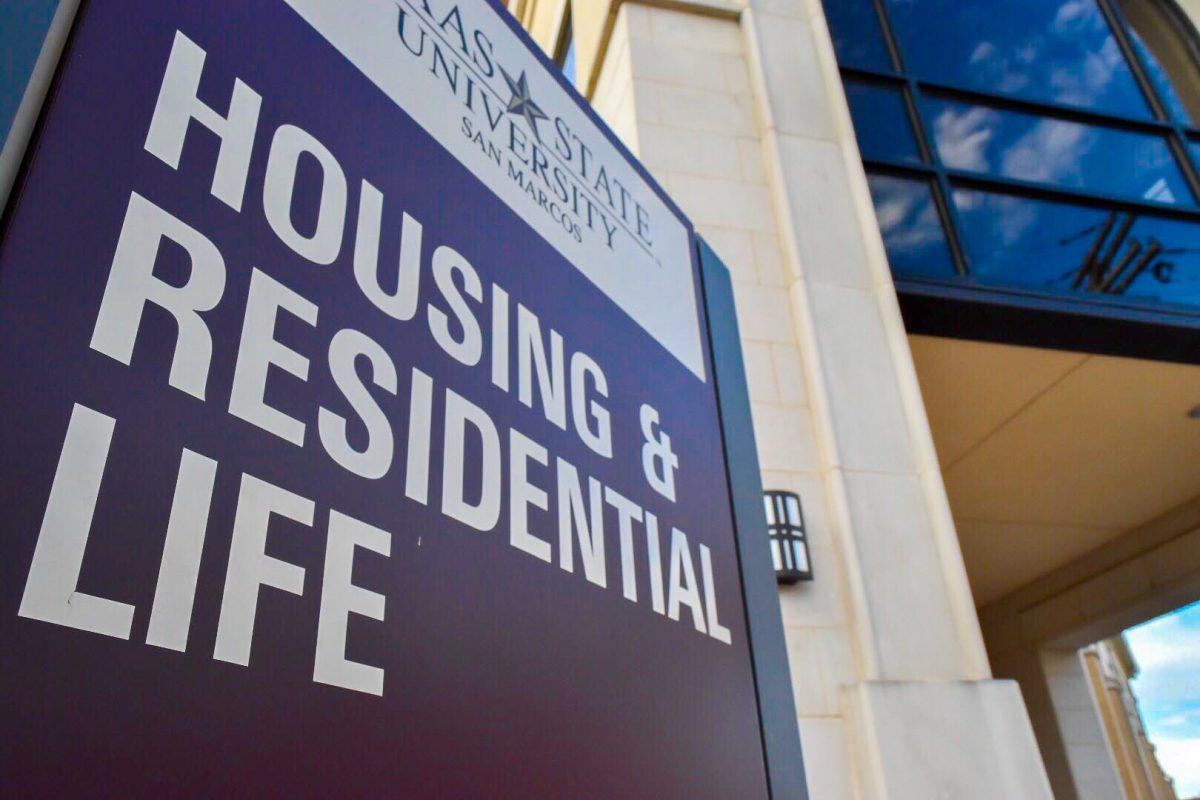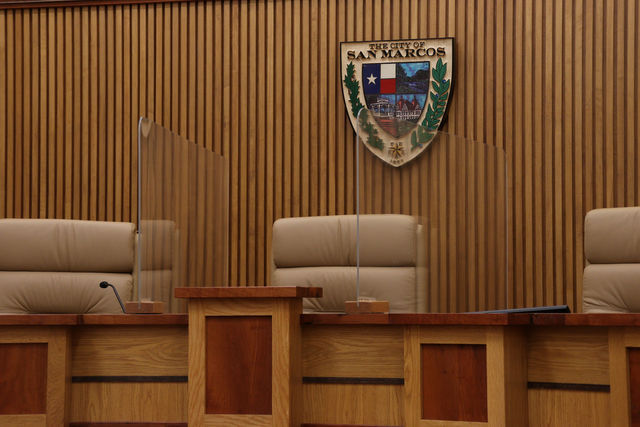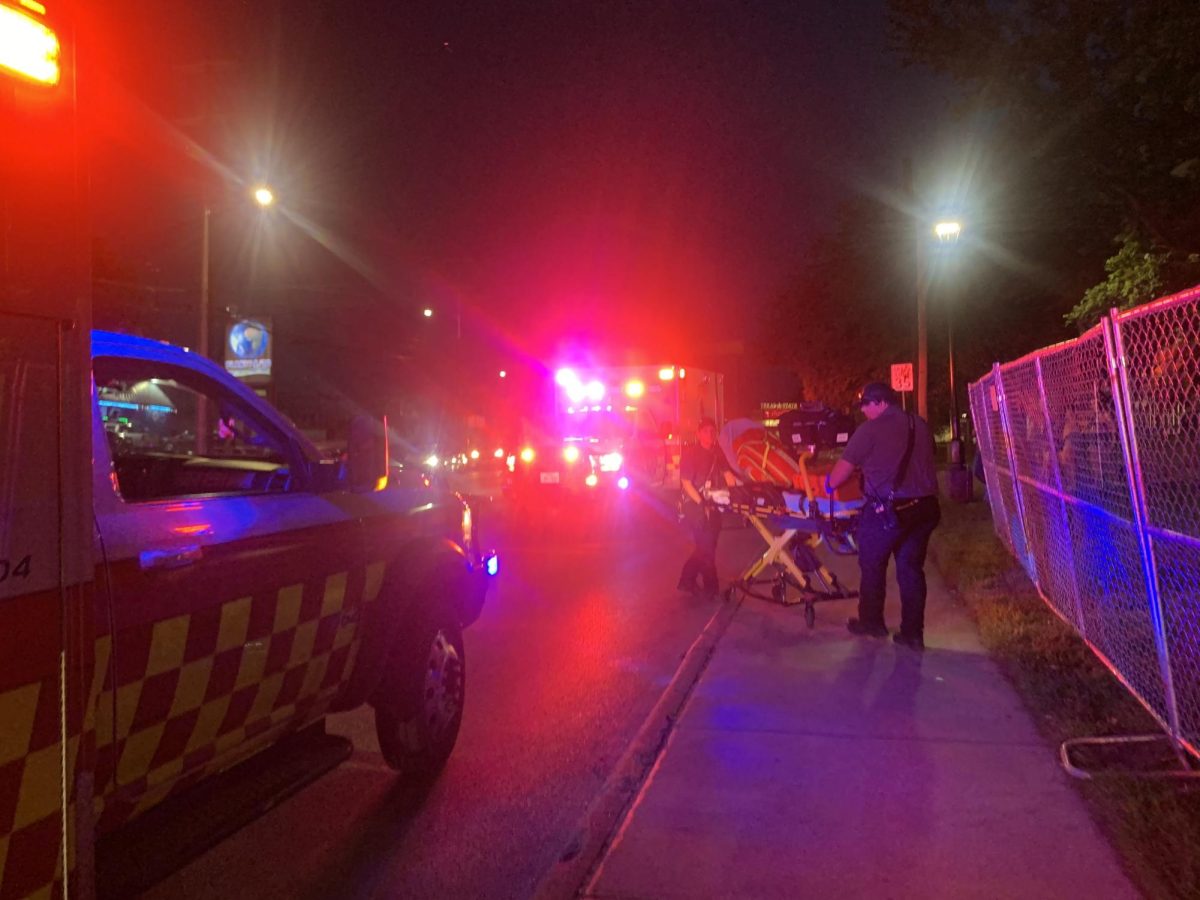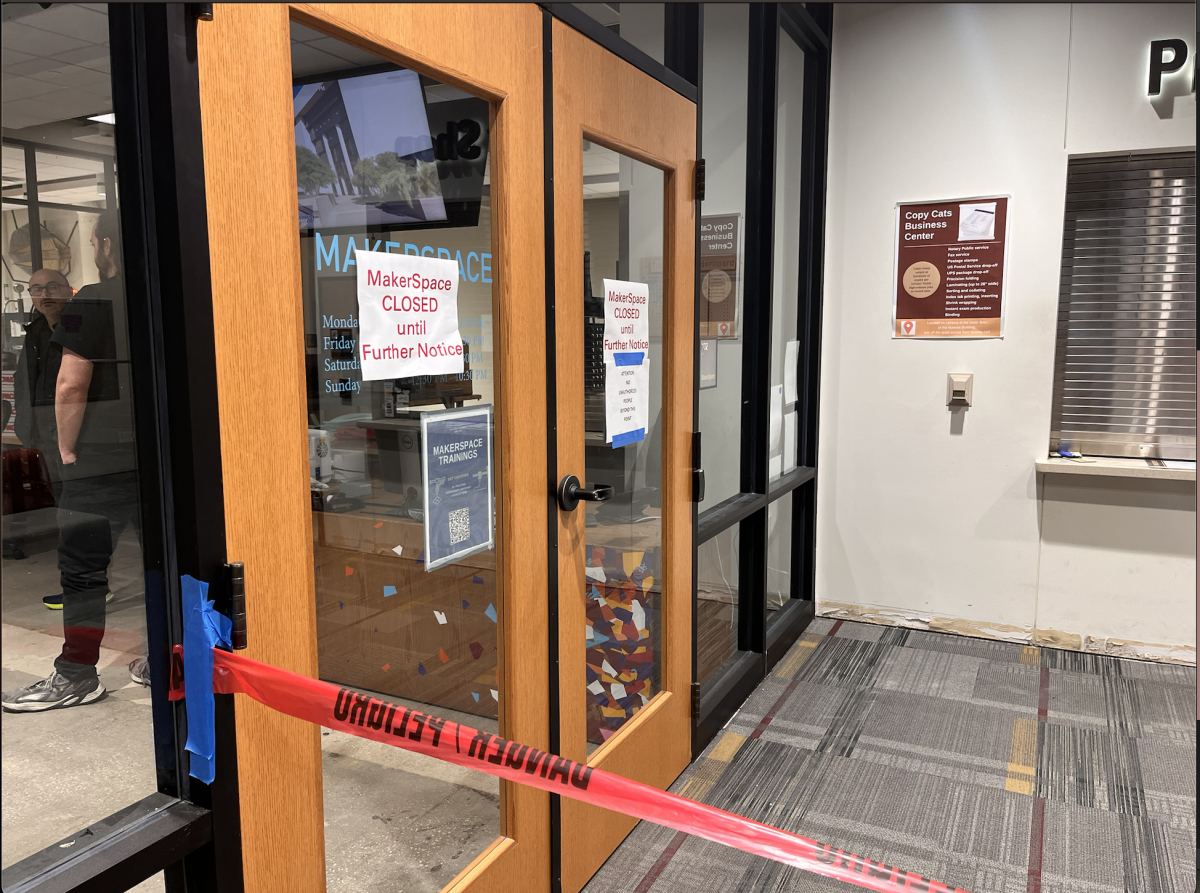The San Marcos Police Department aimed to decrease the number of noise complaints using a variety of methods, reportedly cutting complaints nearly in half over a 10-year period with the implementation of the ACT Ally program.
The ACT Ally program is described on its website as a “collaborative effort between Texas State University and the City of San Marcos to reduce common sources of conflict in a university town: noise, parking, trash and the upkeep of rental property.”
According to the 2017 San Marcos Housing Assessment, 72% of citizens in San Marcos are renters and 28% are homeowners. With student renters making up a significant portion of the population in San Marcos, the city’s lack of a landlord-tenant association and lack of a nonprofit organization aiming to assist prospective tenants creates an environment where the landlord-tenant relationship leans in favor of the landlord.
Former SMPD Assistant Police Chief and current Community Liaison Lisa Dvorak diagnosed the issues facing student-renters and established the ACT Ally program to counteract them. Dvorak said the program can be used as a marketing tool that concurrently improves the conditions of students.
“This is a program of influence,” Dvorak said. “Those corporations’ market is students and what they want is to market to students. Our stand is, ‘why would you give that away for free?’ If it costs money to have a housing fair and to have all these things, (the apartment complexes) should have to pay for those services and if they don’t behave, why would we say, ‘Absolutely, come market to students.’”
In order for an apartment complex to be eligible for the ACT Ally program, they must promote noise management, responsible alcohol consumption, collaboration with city officials and receive a score of at least 80% compliance with an annual property crime prevention survey.
Dvorak said a majority of noise calls were originating from multifamily units, citing data that pointed to Sagewood Trail.
“As we started to get into the problem-solving effort and doing the data analysis, what we started to find is that although longtime residents were complaining about Sagewood (Trail), their complaint was primarily about The Sagewood (Townhomes)…once we started doing data analysis, we found that the largest offenders related to noise are not the single-family homes—they are in multifamily,” Dvorak said.
After working on Sagewood, Dvorak was asked to expand her efforts city-wide as the noise complaints were not confined to one area. Dvorak said her team works to educate citizens, even those living in non-ACT Ally housing, to become more aware of their surroundings.
“We just work to educate people that they don’t live in a vacuum and that noise beyond a property line is disturbing,” Dvorak said. “The police officers teach people this–just go inside, be quiet. You can turn music on but if it reverberates, go outside and if you hear it talk to your neighbors.”
Former SMPD Police Chief Howard Williams, now a criminal justice lecturer at Texas State, said the methods used by SMPD and the ACT Ally program to lower the amount of noise complaints is more effective as opposed to the traditional enforcement used in the past.
“We had long relied on writing tickets and making arrests to enforce noise ordinances. Clearly, this was not working because the problem continued and continued,” Williams said. “We decided to change approaches–to approach this like a public disorder issue rather than a crime issue. It worked extremely well.”
According to records provided by SMPD, noise calls made up roughly 28% of all calls for service in 2018. SMPD Police Chief Bob Klett, a 29-year officer with prior positions at UPD, said noise complaints are the most abundant call his department receives from citizens. The department has concurrently worked to alleviate the number of calls since 2008, reporting a significant improvement in 2018.
“For many years, noise calls were the number one calls for service in the City of San Marcos,” Klett said. “We’ve been doing some things to address those. The ACT campaign and how we educate the community help to reduce the number of calls. In the last 10 years, we’ve reduced our loud party responses by about 50% over what they used to be before, which lets us focus on more important and ongoing things.”
Klett said the efforts to mitigate noise complaint calls have reaped significant savings in officer time and drive time, allowing his officers to focus on more important calls.
“Generally, an officer will spend about 20-30 minutes potentially on a noise call and then there are two officers, so that’s one hour of officer time…drive time is included also,” Klett said. “Over the last 10 years, when looking at these noise reductions, we’ve saved about 8,000 hours of officer time and that’s not including driving back and forth, so that’s significant…that allows me to reallocate other officers to other things.”
Williams said the police department received many accolades and awards for their work to decrease noise complaints, including being a finalist for the national Herman Goldstein Public Problem Solving award for their efforts.
“One year, just before I retired, we were one of the eight finalists in the world. We were competing against places like the New York (City) Police Department, the London Metropolitan Police Department (and) the Singapore Police Department,” Williams said. “We were on the big stage because of what we had done here in San Marcos.”
More information about the ACT Ally Program can be found on Texas State’s website.
April 19, 2024
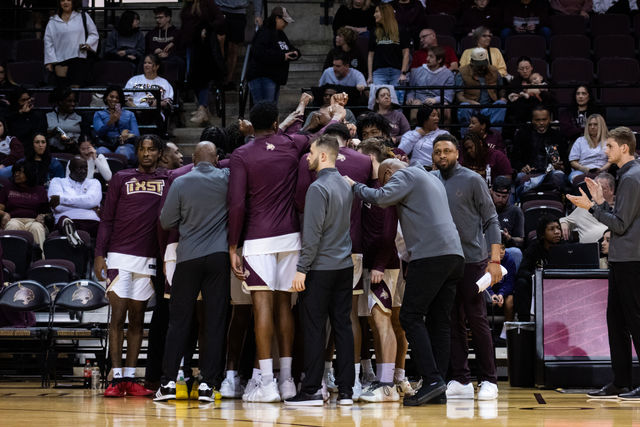
April 18, 2024

April 18, 2024

April 18, 2024
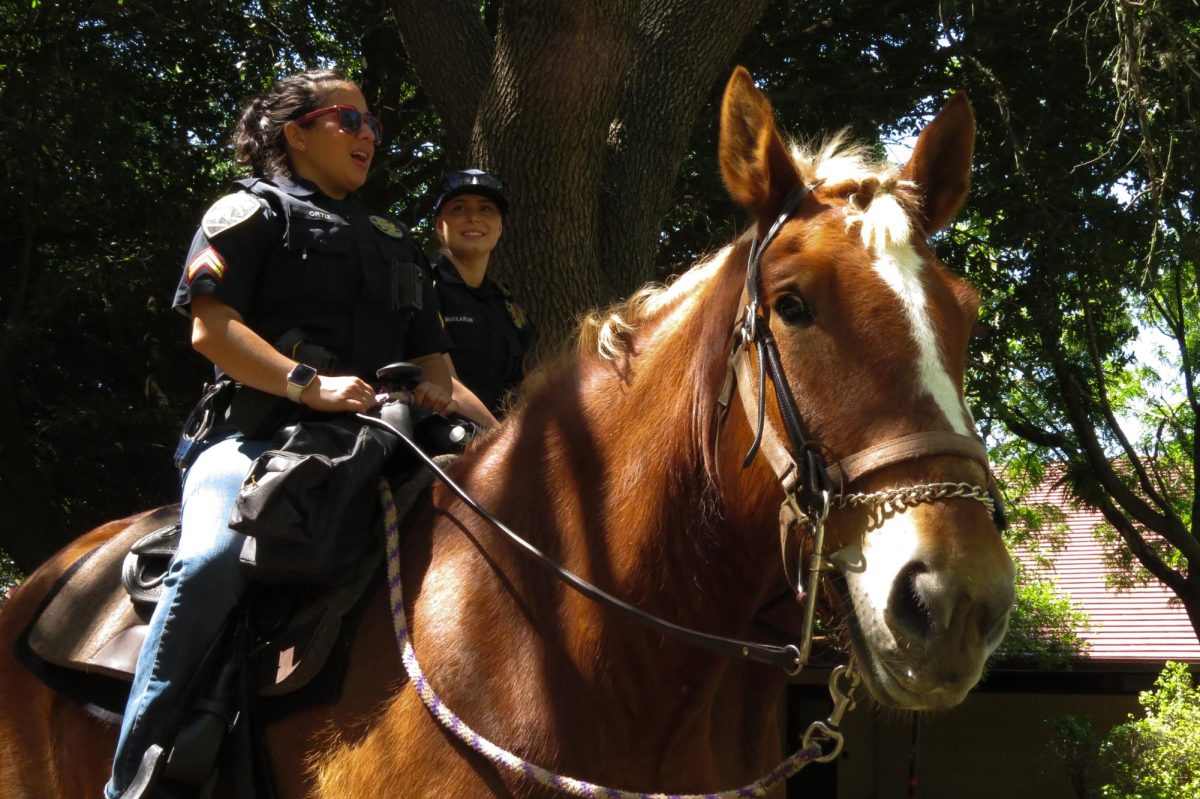
April 18, 2024
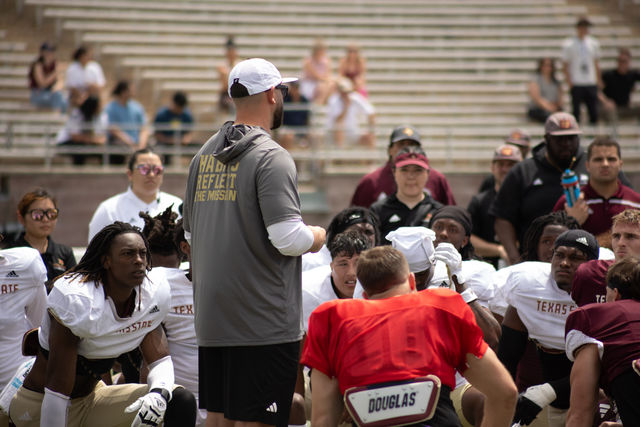
April 17, 2024
How ACT Ally turns down the volume
February 25, 2020
With 38,661 students enrolled at Texas State fall 2018, approximately only 7,000 lived on campus, according to a Root Policy Research report on San Marcos housing.
Donate to The University Star
Your donation will support the student journalists of Texas State University. Your contribution will allow us to purchase equipment and cover our annual website hosting costs.
More to Discover
SECTIONS
SERVICES
CONTACT INFORMATION
universitystar.com
601 University Drive
San Marcos, TX 78666
Phone: 512-245-3487
Email: [email protected]
601 University Drive
San Marcos, TX 78666
Phone: 512-245-3487
Email: [email protected]
© Copyright 2024 The University Star 601 University Drive, San Marcos, TX | Privacy Policy
© Copyright 2024 The University Star 601 University Drive, San Marcos, TX | Privacy Policy

